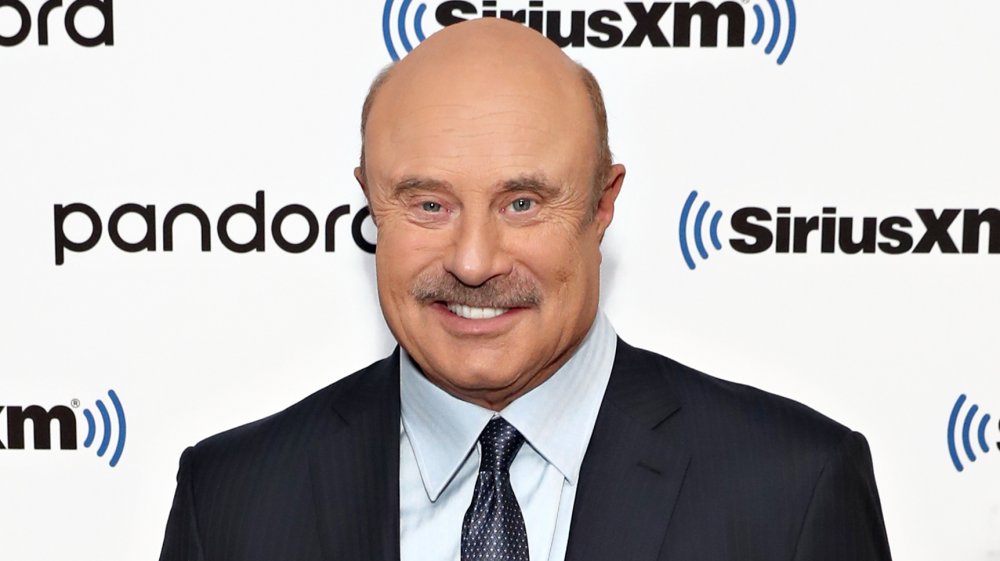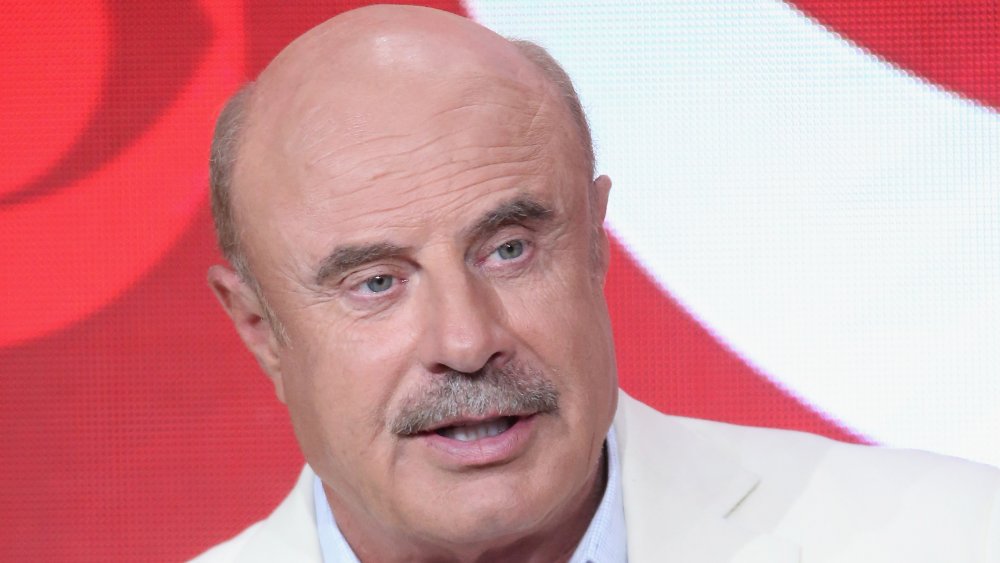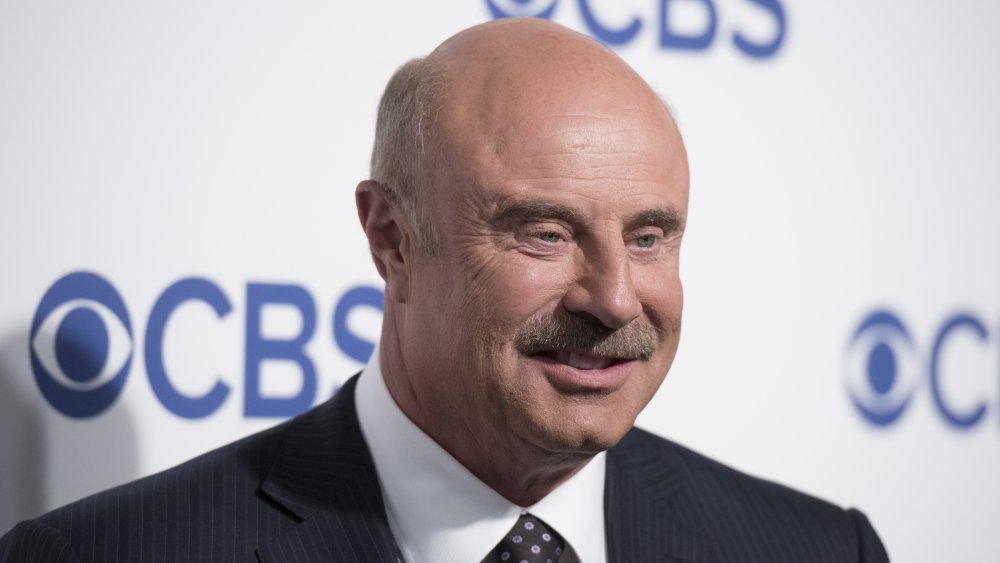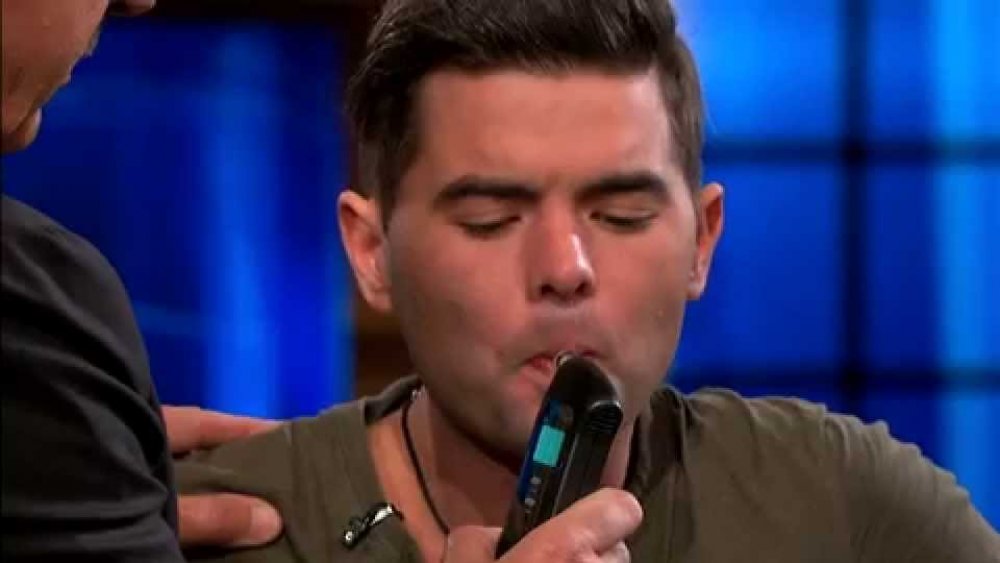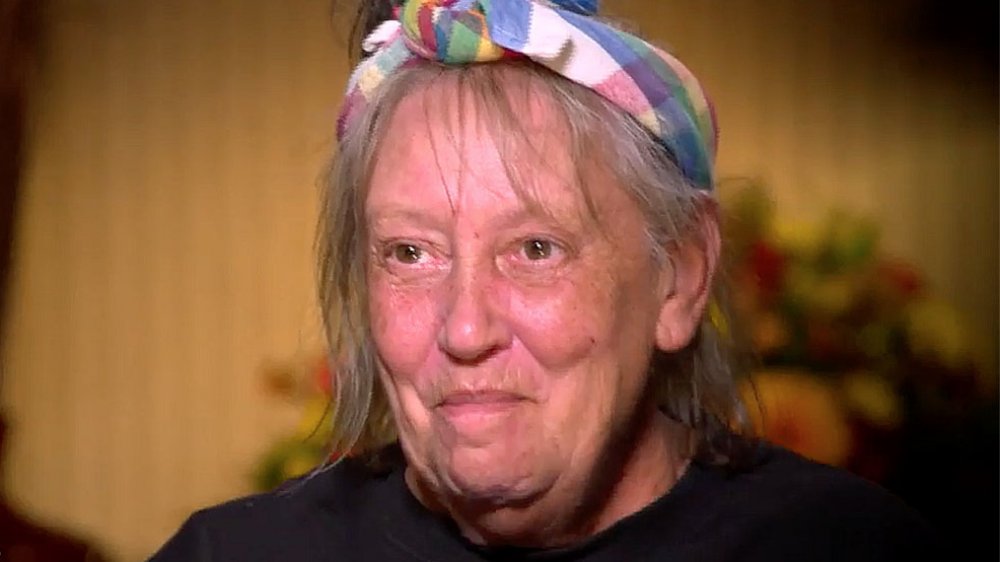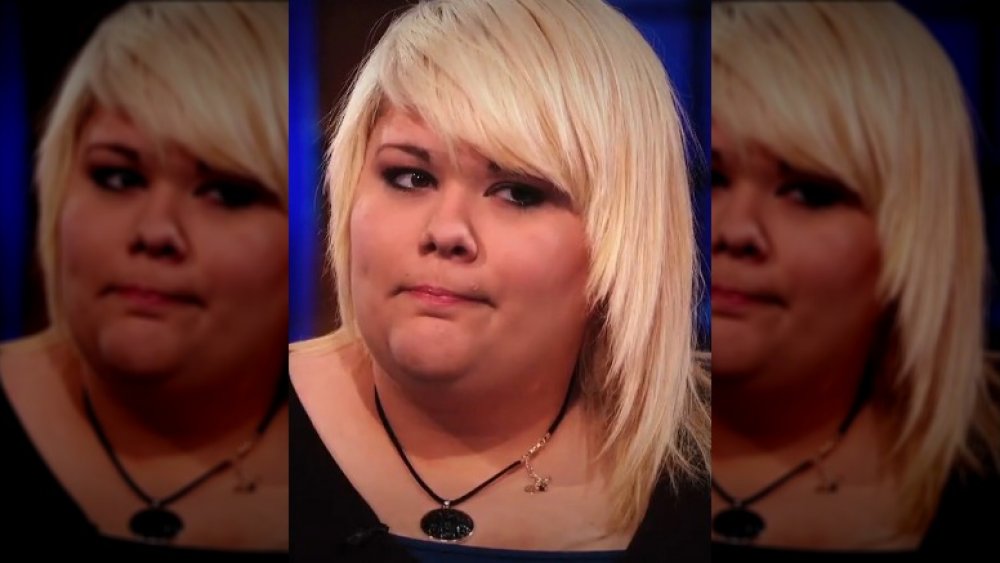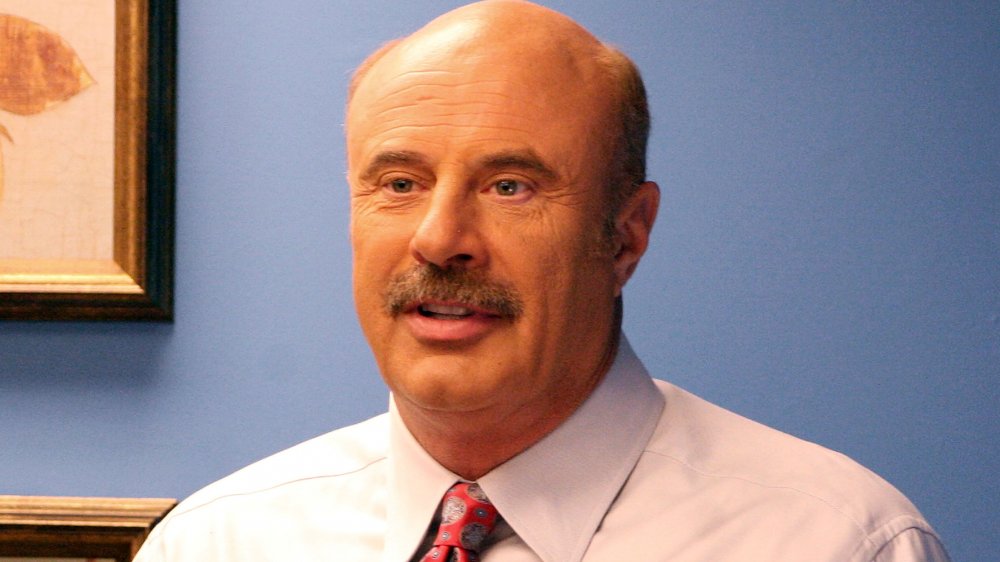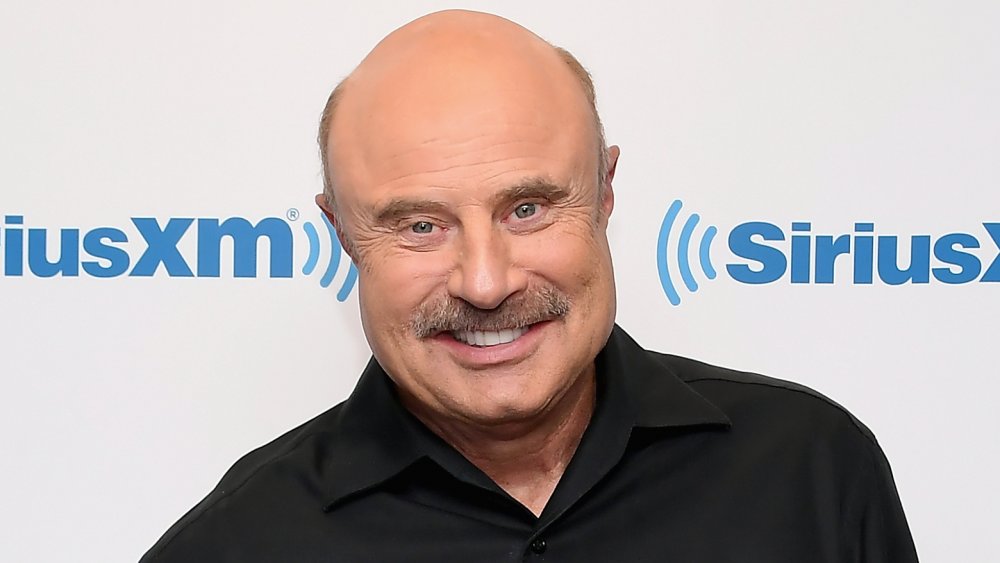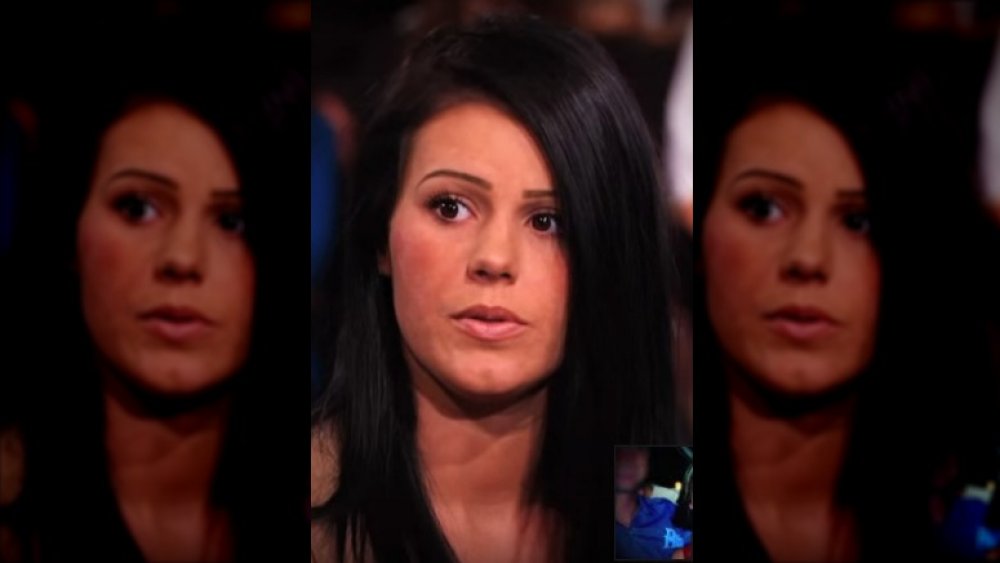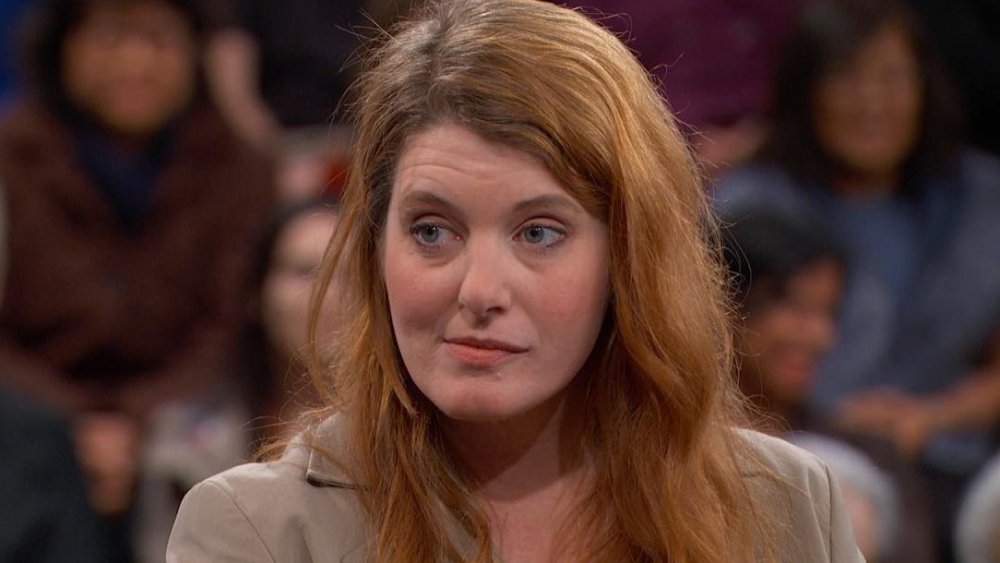Guests Who Claimed Their Lives Were Ruined After Being On Dr. Phil
Love him or hate him, Phillip C. McGraw has undoubtedly helped countless people, either through his advice, tough love, or financial support. For nearly 20 years, McGraw has provided thousands of guests with life advice and better living strategies on his show Dr. Phil. While he may be no different than any other talk show host that seeks out the wildest guests they can find, The New York Times suggested that McGraw's words tend to carry more weight for guests and viewers because of the "honorific" title of doctor preceding his name.
In truth, McGraw "is not a licensed psychologist" (per Vox), though he does "hold a doctorate in psychology." That's not to say that he can't provide excellent advice, just that his treatment tactics and his methods may not follow traditional (or proper) medical guidelines. Yet, according to some former guests of Dr. Phil, McGraw only made their conditions and situations worse. In fact, McGraw has been dragged him into court, and accused of fraud and other unsavory tactics by some of the very people he attempted to help — who now claim he did the exact opposite.
Here are some of the guests who claimed their lives were ruined after being on Dr. Phil.
The Dr. Phil House does not sound fun
For special guests in need of more extensive treatment than one Dr. Phil episode can offer, McGraw offered a stay in the "Dr. Phil House," which according to a lawsuit brought by some guests against McGraw and CBS (via The Orange County Register), was nothing more than "a cramped, windowless 'mock house' on a sound stage in a bad neighborhood." Shirley Rae Dieu, one of six guests staying in the house and attempting to work through trust issues with men in 2007, claimed she was subjected to a variety of traumatic experiences during her stay.
In addition to emotional and physical abuse, Dieu claimed that McGraw tried to "brainwash" her. She was also allegedly "forced to be in the same room with a completely live naked man while he exposed his entire naked body, genitals and all," according to the lawsuit (via TMZ). Dieu claimed that when she tried to escape the house, she "was blocked by the staff to prevent her from leaving."
In response, representatives for the show released a statement (via People): "All of Shirley Rae Dieu's claims are without merit. ... once Ms. Dieu expressed her discomfort, and producers ascertained there was nothing they could do to help her, they called a car service to return her to her home." The statement also noted, "Ms. Dieu filed a claim with the Los Angeles Police Department some 9 months after the incident, which was investigated and ultimately not pursued by the Los Angeles City Attorney."
Bambi Bembenek's rough life only got worse after Dr. Phil
Cop turned murder convict, Laurie "Bambi" Bembenek, wasn't exactly living her best life when she agreed to appear on Dr. Phil, but things were about to get worse. According to the Los Angeles Times, Bembenek was given life in prison for killing her ex-husband's first wife in 1981. She then escaped through a laundry room window, became a folk hero of sorts, and reached a deal to serve her remaining sentence on parole.
But Bembenek wanted her name cleared and Dr. Phil could help. According to the Chicago Tribune, show producers agreed to pay $20,000 to test the DNA evidence in her case. In return, Bembenek would appear on the show to reveal the results Yet, her lawyer, Mary Woehler, told the Los Angeles Times that the living arrangement that the show set up for Bembenek was disastrous. They put her under "constant videotaping and a 24-hour-a-day guard" by a former police officer, and the claustrophobic setup triggered her.
"She told them to stop," Woehler said. "Then she panicked, and tried to get out a window. She fell and severely injured her foot, which has now been amputated." Friend Ira Robbins told The National Inquirer that Bembenek lost more than a foot that day. "Since the incident, Laurie has not been able to work or support herself," he said. "She's said many times that she holds Dr. Phil and his producers personally responsible for ruining her life." Worse yet, Bembenek died of liver failure at 52 without having her name cleared.
Is Dr. Phil willing to let his guests come close to death?
After winning Survivor in 2007, Todd Herzog struggled with alcoholism so heavily that his family sought out Dr. Phil for help in 2013. A few days later, Herzog was being helped onto the Dr. Phil stage, so intoxicated that he could barely walk. According to Herzog, he was only drunk because alcohol was available to him backstage. As per STAT, in his dressing room, "he found a bottle of Smirnoff vodka. He drank all of it." He also said a staff member gave him a Xanax to "calm his nerves." Representatives from the show denied both claims.
On stage, McGraw told him, "I've never talked to a guest who was closer to death." He may have been right. The effects of mixing these alcohol and Xanax can be fatal, which Herzog apparently felt was a risk the show took "to show the pain that [he was] in" (per STAT). Herzog ended up appearing on Dr. Phil three times, getting clean after a few relapses. But he also told STAT that there things about the show that he didn't like and didn't think were "real."
In the end, Herzog remained somewhat unequivocal about his Dr. Phil experience. In his 2018 Reddit AMA (via E! News), he said he was "grateful in a lot of ways for the show," particularly for landing him in such posh rehabs. However, in the same chat, he also said that he is "not a fan" of McGraw.
Was Shelley Duvall exploited on Dr. Phil?
Shelley Duvall, the actor best known for The Shining and Popeye, was clearly struggling with mental health issues when she came on Dr. Phil. Even before the show aired, a 30-second promo for the episode that spliced together some outlandish comments made by Duvall, sparked outrage. In response, friends and fans of Duvall called out what the apparent exploitation of the former star. The daughter of Stanley Kubrick, the director of The Shining, tweeted an appeal to boycott the episode. Mia Farrow and Ronan Farrow also voiced their displeasure. But McGraw still aired the show.
According to Variety, the episode featured a 45-minute discussion between McGraw and Duvall. "The rest followed Duvall as she was escorted to the Creative Care mental health treatment center in Malibu where, according to McGraw, she stayed for three days but refused traditional medication," the outlet noted. The following year, Radar Online reported that "Duvall's physical and mental conditions have deteriorated dramatically since her controversial appearance on a TV show in November." Asked by the tabloid about the treatment promised by McGraw, Duvall gave an incoherent statement
Clearly, the daytime ratings giant didn't turn things around for Duvall, who was already on a bad path prior to her appearance. As for Dr. Phil's response to the accusations of exploitation? He likened himself to Theodore Roosevelt, quoting the 26th U.S. President to Buzzfeed's Profile: "The credit goes to the man in the arena, you know, the man that stumbles while striving to do greatly."
This Dr. Phil guest was badly injured in lockdown
Sierra Myers (pictured above) was on Dr. Phil because she was underage and soliciting sex from older men online. According to a lawsuit filed by her parents, Terri and David Myers (via Courthouse News Service), the teen's problems likely resulted from a traumatic event in which she witnessed the murder of a man with whom she was sexually involved. "Dr. Phil's psychological remedy," the complaint stated, "was to offer free treatment for the daughter at Island View, a Utah punitive behavior modification lock-down facility."
Although the suit ended in dismissal, it alleged that Sierra endured a "demented regimen" that consisted of "mindless tasks of blind obedience enforced by cruel punishment." While in custody, Sierra suffered nerve damage in her arm which was "perhaps irreparably broken" during a physical altercation with a math teacher. The suit also stated that Dr. Phil and the staff at Island View should have known that Sierra's traumatic experiences would have made her emotionally vulnerable in the austere conditions at the facility.
"Dr. Phil has shown himself to be a showman more interested in ratings than a psychologist devoted to healing," the suit stated. "Dr. Phil, on information and belief, was paid either in money or notoriety, or both, for endorsing not only Island View, but also a raft of CRC compounds just as abusive." According to Dr. Phil's lawyer in a response given to The Wrap, "The Myers' daughter was at Island View voluntarily, and while McGraw recommended treatment, he did not control it."
Did Dr. Phil make these murder suspects look bad?
Though the case of Natalee Holloway, the Alabama teen who disappeared in Aruba, remains unsolved, Dr. Phil made noise when he decided to wade into the infamous investigation. During a 2005 segment, he aired a recording of a discussion between suspect Deepak Kalpoe and private investigator Jeremy Skeeters. The aired recording, however, was allegedly altered. Appearing on The O'Reilly Factor, Geraldo Rivera explained how there were supposedly two tapes: the one played on Dr. Phil and the one that police had.
According to Rivera, Kalpoe allegedly answered "she did," when asked if Holloway slept with him and two other suspects in the Dr. Phil tape. "So we were outraged," Rivera said, because Halloway was reportedly "in and out of consciousness" during the sexual encounter. "Even if they didn't murder her, they were guilty of raping her," Rivera alleged. But Kalpoe's answer was reportedly different on the other tape. "The Dutch tape, however, if you listen closely and according to them, he says, 'no she didn't,'" Rivera said.
Kalpoe and his brother responded by filing an $800 million defamation suit against Dr. Phil and CBS, as per The Los Angeles Daily News. The suit alleged that the tapes were "significantly manipulated and altered" and that McGraw and company were guilty of "invasion of privacy, emotional distress, fraud, deceit and civil conspiracy." In the end, McGraw wasn't forced to pay because, according to The Huffington Post, "the plaintiffs did not dispute claims by Dr. Phil's attorneys that they never demanded a correction."
These Dr. Phil guests claim they were fat-shamed for ratings
Maryanne Bodolay and Sally E. Smith were both huge fans of Dr. Phil, but, when they were apparently misled by show producers, their opinion of the TV psychologist changed dramatically. According to the New York Post, Bodolay, a former employee of the National Association to Advance Fat Acceptance (NAAFA), and Smith, the editor-in-chief of Big Beautiful Woman, say they were lured to the show after a producer called her and "asked about the way heavy people are treated and how she was happy with her body size."
"We agreed on that premise," Bodolay told the outlet. But, when they got to Las Vegas, a show producer wanted to follow the women around with a hidden camera, hoping people would make fun of them. "I told them, 'It's not going to happen — people won't care in Las Vegas. They care about gambling.'" She was right, but, as she tells it, the producer then paid onlookers to mock them for the camera.
As for the actual Dr. Phil episode, Bodolay believes they were ambushed. "When we got to the show, the whole premise changed. Suddenly, they had a couple of fat people in the audience striving to get thin: They were good, and we were bad because we were living. We weren't attacking ourselves because we were fat," she said to The New York Post. "It was disappointing the way Dr. Phil decided to conduct the show. My feeling was we were used."
Did a Dr. Phil producer help this guest score heroin?
When Maryanne Smith brought her niece, Jordan (pictured above), to Dr. Phil, she did it in hopes of getting the young woman the help she needed to combat a serious heroin addiction. In an interview with STAT, however, Smith claims that they were not provided the medical assistance they so desperately needed. They were helped in a different way, though.
According to Smith, they arrived in Los Angeles two nights prior to the show taping, but weren't provided with any medical care. When Jordan began going through serious withdrawals, Smith and Jordan's mother didn't know where to turn for help. "We never had anyone," she said. "It was just the three of us girls the entire time." This is when, according to Smith, they reached out to a producer to get help with finding heroin. "They told us where to go, Skid Row," Smith said. "I was so scared."
The producer allegedly told them not to say anything about the trip to find heroin, and Smith cannot remember who it was who suggested the dangerous mission. "It was a complete bust," she said of their appearance on Dr. Phil. "Didn't help at all. Just ratings for him. People are going to him, like us, with serious, life-threatening problems looking for help. It just doesn't happen." A rep for the show insisted that Jordan and many other guests "all had medical supervision."
This Dr. Phil guest said she was mocked into a mental breakdown
Kaden Mahaffa appeared on Dr. Phil to be part of the support system for her boyfriend, who was the victim of sexual abuse. During the appearance, however, the focus of the discussion turned on Mahaffa. McGraw questioned her about some of the claims she had made during the pre-interview. Mahaffa was asked about her apparent "savant abilities," her "x-ray vision," and "representing [herself] as a credentialed professional," all while McGraw's audience laughed mockingly at her.
Mahaffa told McGraw that she was "not in a good space right now" and that she felt "attacked," but the former psychologist suggested that she was fair game. "You're being questioned because you're making some claims," he said. "If you make those claims then you need to be prepared to defend them." According to Mahaffa, the experience sent her mental state into a nosedive backstage.
Mahaffa claimed that she "suffered a mental breakdown backstage," according to lawsuit documents obtained by TMZ. The humiliation suffered on stage led to her "collapsing in tears and engaging in erratic behavior." The report states that she began pulling out her hair and shouting, which then led to police being called, and her being "involuntarily committed to a mental health facility for 5 days." The suit also suggests that the subsequent online backlash and harassment from Dr. Phil fans caused her to become suicidal.

